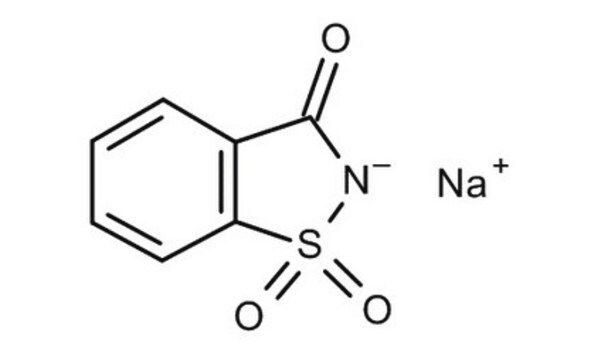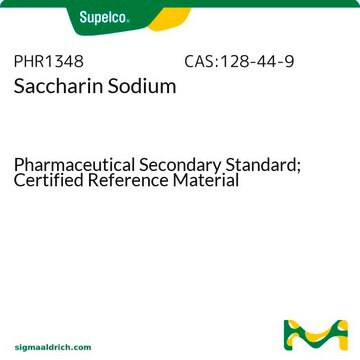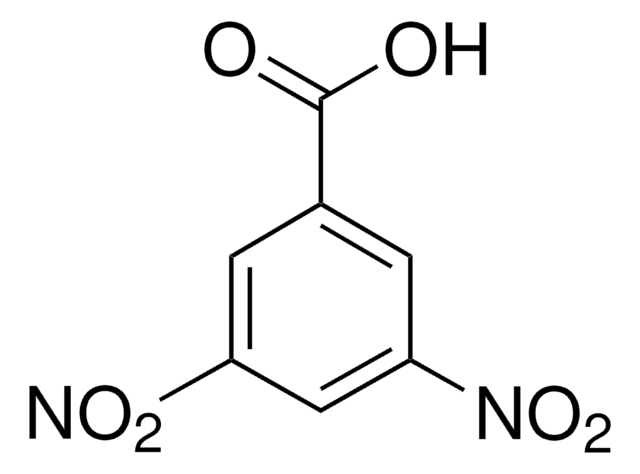S1002
Saccharin sodium salt hydrate
≥98.0% (titration)
Synonym(s):
2,3-Dihydro-3-oxobenzisosulfonazole sodium salt, 2-Sulfobenzoic acid imide sodium salt, o-Sulfobenzimide sodium salt, Saccharin soluble
About This Item
Recommended Products
Quality Level
Assay
≥98.0% (titration)
sweetness
300 × sucrose
SMILES string
[Na+].[H]O[H].[O-]C1=NS(=O)(=O)c2ccccc12
InChI
1S/C7H5NO3S.Na.H2O/c9-7-5-3-1-2-4-6(5)12(10,11)8-7;;/h1-4H,(H,8,9);;1H2/q;+1;/p-1
InChI key
ILJOYZVVZZFIKA-UHFFFAOYSA-M
Looking for similar products? Visit Product Comparison Guide
Application
- Application of a colorimetric technique in quality control for printed pediatric orodispersible drug delivery systems containing propranolol hydrochloride.: This article discusses the use of a colorimetric method to ensure quality control in 3D printed pediatric drug delivery systems, incorporating saccharin sodium salt hydrate as a sweetener, emphasizing its role in improving the taste and compliance of pediatric medications (Vakili et al., 2016).
Biochem/physiol Actions
Storage Class Code
11 - Combustible Solids
WGK
WGK 2
Flash Point(F)
Not applicable
Flash Point(C)
Not applicable
Personal Protective Equipment
Certificates of Analysis (COA)
Search for Certificates of Analysis (COA) by entering the products Lot/Batch Number. Lot and Batch Numbers can be found on a product’s label following the words ‘Lot’ or ‘Batch’.
Already Own This Product?
Find documentation for the products that you have recently purchased in the Document Library.
Customers Also Viewed
Our team of scientists has experience in all areas of research including Life Science, Material Science, Chemical Synthesis, Chromatography, Analytical and many others.
Contact Technical Service













